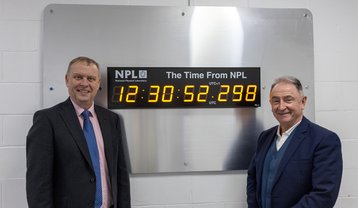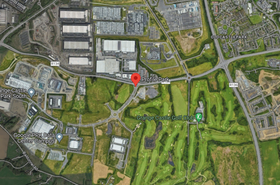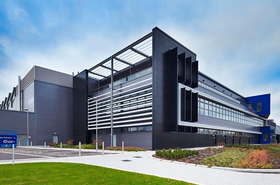The UK’s National Physical Laboratory (NPL) has launched the first of three innovation nodes with a focus on the application of accurate and precise timing in new technologies.
Hosted at the University of Strathclyde, the University of Surrey, and Cranfield University, the nodes allow researchers to access traceable time signals to aid R&D projects. The first node, at Strathclyde, opened today, with the others expected to be up and running in the next few months.
The NPL is a center of excellence for measurement science, engineering and technology.
UK’s NPL launches innovation nodes
The innovation nodes are part of NPL’s National Timing Centre (NTC) program, which is the UK’s first nationally distributed time infrastructure that provides secure, reliable, resilient and highly accurate time and frequency data.
It is hoped NTC will aid the acceleration of new technologies such as time-critical 5G and 6G applications, next generation automated factories and connected autonomous vehicles.
The innovation nodes are also focusing on the application of accurate and precise timing for new technologies and products for other sectors, too, including telecoms, fintech, and quantum.
Dr. Leon Lobo, head of the NTC program, said: “Time is an invisible utility that underpins our digital infrastructure, from synchronizing the energy grid and telecom networks to timestamping financial trades.
“The close collaboration with Strathclyde will offer industry and academia access to reference timing signals to stimulate the development of new products and services, necessary to enable resilient time for the future.”
Innovation nodes host timing projects
During their development, the three node sites hosted feasibility and demonstrator projects funded by innovation agency Innovate UK. In total, 26 projects were supported with technical consultancy and access to high-accuracy timing signals to enable the development of new products and services.
The projects that accessed traceable signals from the innovation nodes include an initiative to establish the evidence base for redistributing positioning, navigation and timing data to air and ground-based autonomous systems in a smart city infrastructure environment and to demonstrate the technologies required for safe, reliable, and secure autonomous transport.
Other projects include the development of innovative products and services to accurately measure electricity grid performance, which rely on a resilient timing reference.
Professor Paul Griffin, of Strathclyde’s Department of Physics, said: “GPS and its equivalent systems provide timing signals which are used around the world to provide accurate time. Unfortunately, GPS and similar signals are very weak and can easily be jammed or spoofed. The goal of the NTC is to provide robust timing for the UK that does not depend on GPS.”






